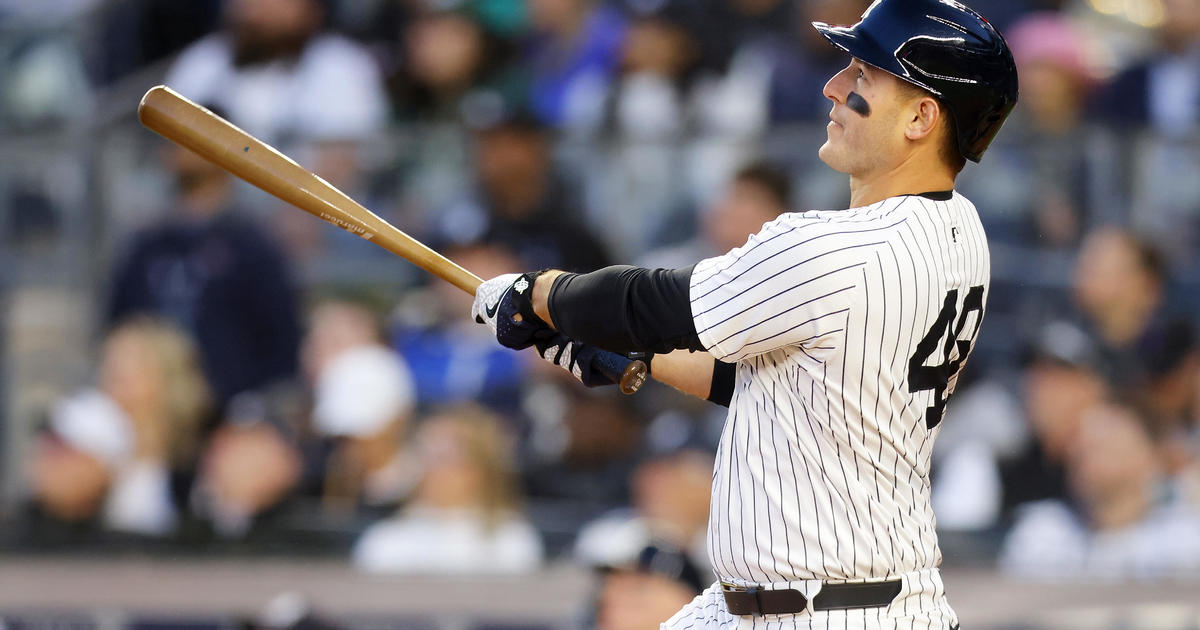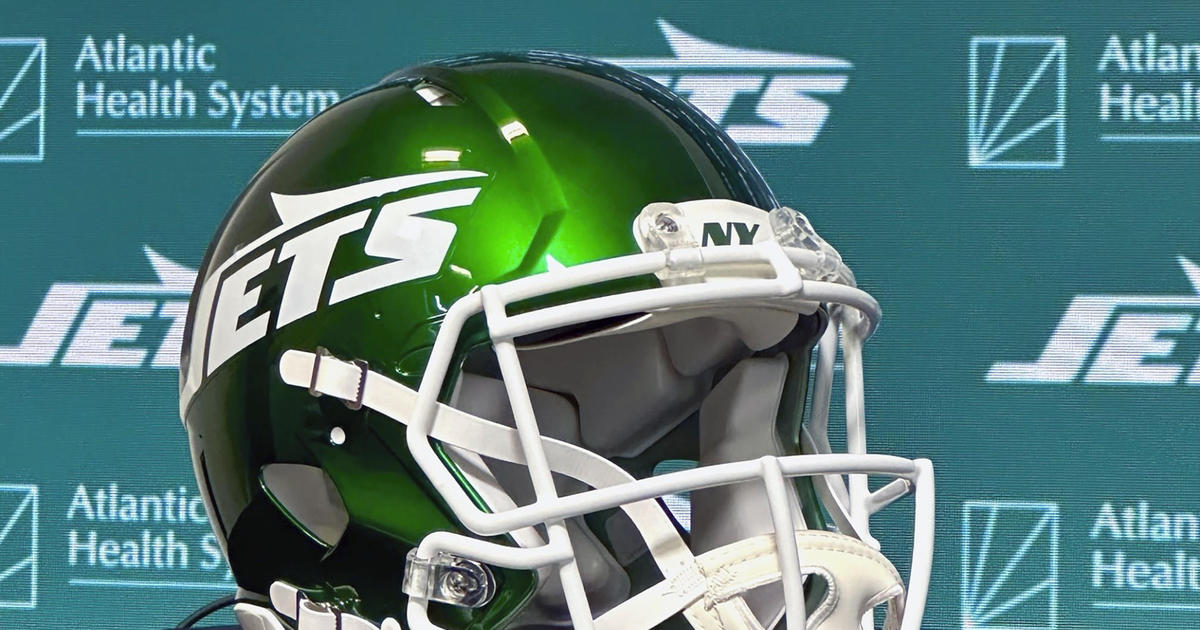Friedman: Former Islander Bob Bourne Opens Up On Concussions
By Daniel Friedman
» More Columns
It's been three months since the NFL shook hands on a $765 million settlement with scores of retired players who threw a challenge flag and claimed the league wasn't informative enough regarding concussion-related risks, among other related grievances.
Now, a contingency of former professional hockey players is taking similar legal action.
On Monday, a group consisting of ten ex-NHLers -- including Gary Leeman and Rick Vaive -- filed a similar class-action lawsuit against the NHL. The official complaint states that "While every blow to the head is dangerous, Plaintiffs did not know, and were not told by the NHL, how dangerous this repeated brain trauma is."
Just before the start of the afternoon rush hour, former New York Islander Bob Bourne announced that he too was entering the lawsuit.
Bourne was an integral part of the dynastic Isles who won four straight Stanley Cups from 1980-1983. He spent 12 seasons with the team and, in 2006, he became the ninth member of the Islanders' Hall of Fame.
I had a chance to speak with Bourne about his involvement in the lawsuit, his thoughts on player safety and even his take on this year's Islanders squad.
DF: First off, I just wanted to let you know I'm pretty sure that you and your son Justin are the only father-son duo following me on Twitter, so congratulations and thanks for your support.
BB: You're very welcome, anytime.
DF: Now, this lawsuit was filed on Monday. What led you to enter the lawsuit, and was this something you knew you wanted to participate in as soon as it was announced? Tell me about how this kind of came together.
BB: I watched what was unfolding with the NFL players and their lawsuit against the NFL. I just felt someone was gonna start an NHL suit. They had asked me about a month ago if I wanted to be one of the players involved in the lawsuit, and it took me a month to decide. When I saw the announcement on Monday, I just decided to come onboard because I felt I had to be part of that group; I felt like I had to be there. If other players were going to do it, then why wouldn't I?
DF: How long ago would you say you became aware of the effects these concussions had on you?
BB: It was a while ago that I first started learning about concussions, but I went out to a doctor and he checked out my whole body -- inside and out -- and that kind of raised the awareness for me about possible concussions when I played.
DF: I don't think that this is about whether or not you knew going in that hockey is a physical sport; there's obviously more to it and it's more about the lingering effects of that physicality. What do you think the NHL should have done, either to increase awareness of these injuries or to increase player safety during your time in the league?
BB: I can't really come out and say what they should have done or shouldn't have done. All I can tell you is that I know for a fact that I felt like I was playing with the flu five times a year. It just felt weird and we were sick a lot. We shouldn't have been, because we were very well taken care of; we had great doctors and everything like that and there's just no way that we should've been that sick all the time.
Now when I look back, I know there were certain times in my career where I must've been having concussions, because I was throwing up on the bench and throwing up on the ice, and in practice. We threw up all the time. Now, a lot of that is because of the work we did, but it just felt weird a lot in those days and there had to have been a reason for it.
DF: The main point your group is trying to make is that the NHL did not inform you enough about concussion risks. Was there any knowledge whatsoever about concussions? Tell me what it was like to receive a hit to the head back when you played and what approach players, medical staff and coaches took in those situations.
BB: We basically had no knowledge about concussions or anything like that. Guys didn't think much about injuries because they were worried about losing their jobs, but we knew nothing about concussions.
When we went down on the ice, we got right back up; there was no laying on the ice. It was a peer-pressure thing -- you came back from anything as soon as possible. Now, there's certain things like knees and shoulders where we couldn't just come out and play if it's not healed yet. But there was an unwritten rule that you played sick. It didn't matter how sick you were, you played. That's just an honor code that we had in those days, and I think the players would today too, if concussions weren't out on the forefront.
I love what the players do now, they err on the side of caution, where we always erred on the side of daring. We just went out and played. We never thought about after hockey, and that's why our pensions suck today. We never thought about what would happen the day we retired and that's how stupid we were, I guess.
DF: People look at this lawsuit and they immediately want to link it to fighting in hockey. Do you think that a ban on fighting has to be part of that solution to prevent brain damage and head injuries?
BB: Not at all. I think if you ban fighting, you're gonna see even more injuries. A lot of players will go out and do things that they would never do if they were held accountable, and fighting keeps the players accountable. There are still guys out there who will go out and run someone from behind if they're not going to be held accountable, so I can't see how you take fighting out of the game.
George Parros got terribly hurt this year in a fight, but that's probably the worst one I've ever seen. I broke my nose many times in a fight, and I'll bet you half of those were because I'm a bad fighter. But I don't think you can take fighting out.
DF: The official complaint mentions the fact that the NHL made the game faster after the 2004 lockout, which made the game more dangerous. You should know I fully agree with that and have pointed it out several times over the last few years. Do you think that, in some ways, the game is more dangerous today than it was when you played?
BB: It's hard to say. I'd like to say it is, but only because the players today are bigger, faster and stronger. Rinks are also too small. If we had Olympic-sized ice in every building in the league, you wouldn't see those hits.
But here's my biggest thing about hockey today: Players don't know how to protect themselves. Everyone wants to take up this no-hitting thing until their 13 years old. Well, how do you learn how to protect yourself when you're six, seven or eight if you're not hitting? I see guys get hit now; they have their backs turned five feet from the boards.
We would never, ever have our backs turned five feet from the boards, because we knew something was coming, so we always went in sideways. It wasn't a cowardly thing to do, it's just that we were aware that we were going to get hit. I think, for guys who are in the NHL now, it goes back to how they played in minor hockey.
A wide receiver coming through the middle knows something's coming, because he learned that when he was six years old playing football. That to me is the biggest thing -- guys just don't know how to protect themselves. For me, it was just second nature. We just didn't go into the boards with our backs turned; we always went in sideways.
DF: Now, to hockey: What is your relationship with the present-day Islanders and do you find yourself cheering for them?
BB: I love the Islanders and I cheer for them all the time. I'm a huge John Tavares fan and I like all those guys. It hurts me that I don't have a closer relationship, but I live in Western Canada and they're 3,000 kilometers away from here. So I don't blame anybody, I don't blame the Islanders.
I could sit down and have a beer with Mike Milbury, but I don't think he promoted the alumni very well in New York. I think the Islanders really, really missed out on an opportunity there and I think it's pretty-well lost now.
DF: What are your thoughts on this Islanders team and their play this season?
BB: They got off to such a good start and then they ran into some issues again, but they've got some great young players and I still believe they have a great nucleus. I don't think they're given the opportunity to be a great team because they don't go out and spend the money on free agents. If you want to win in this world, you're gonna have to spend some money.
DF: Much like you were, Michael Grabner is a speedster with all sorts of talent. Do you see any parallels between the two of you, and who would win a race between him and 1980s Bob Bourne?
BB: (Laughing) Well I don't know, the kid's so big and strong. But I certainly see parallels because the guys used to laugh at me so much on the team, like Butchie Goring and Bryan Trottier. I'd have two or three breakaways a game and I couldn't score, so I feel the same thing with Michael Grabner.
I love watching him play, I think he's really exciting. I think it's a lot like when Al Arbour used to tell me to slow down in order to get some more control. I don't think I became a complete player until I was five or six years in the league, and I think Michael's going to be a great player.
Bob Bourne is a retired NHL player with 582 points and 964 career games under his belt. You can follow him on Twitter @bbourne14.
Follow Daniel Friedman on Twitter @DFriedmanWFAN.
You May Also Be Interested In These Stories



